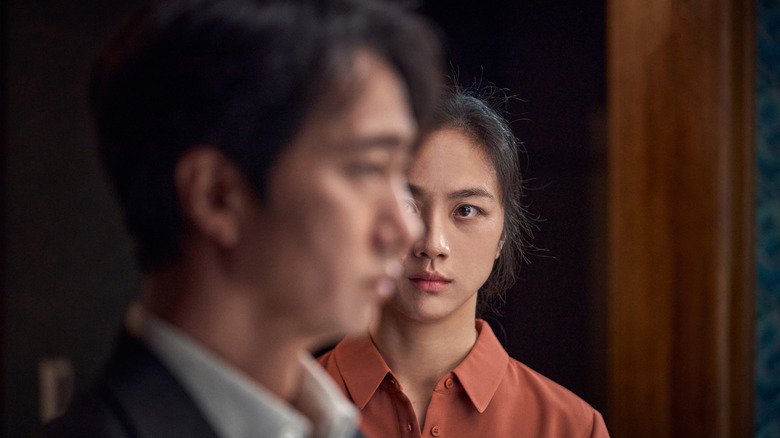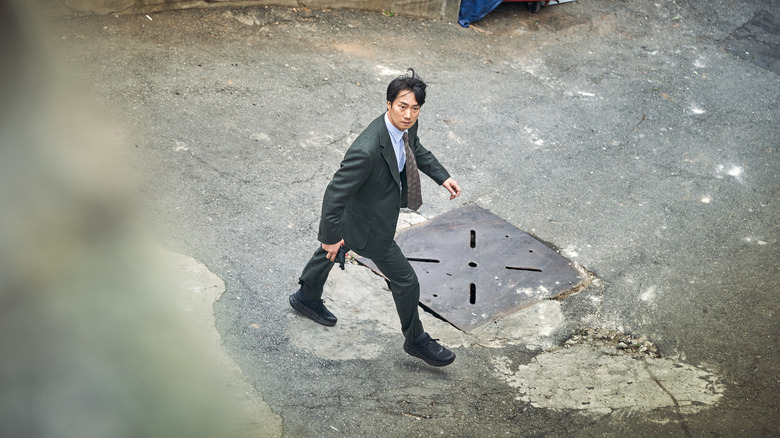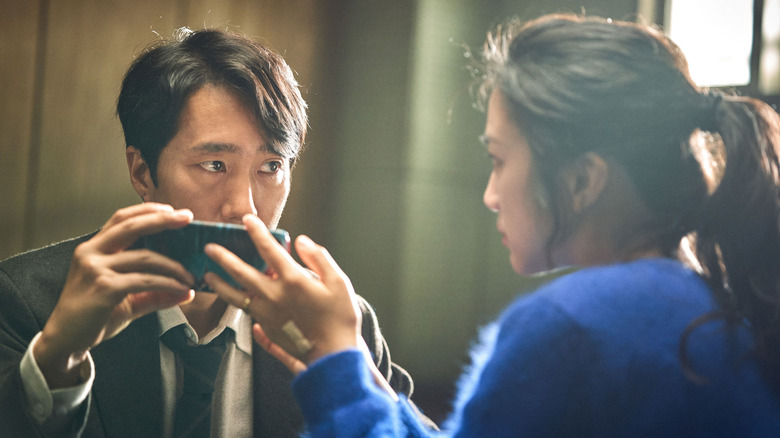Decision To Leave Review: Park Chan-Wook Directs The Hell Out Of A Romantic Mystery [Cannes]
Though it features fewer cinematic tricks or surprises than fans of his earlier work might expect, Park Chan-wook finally returns with "Decision to Leave." His first feature in six years is a misty detective romance that prioritizes mood, aesthetics, and the psychology of its characters rather than multilayered plots meant for a quick surprise.
Park Hae-il plays detective Hae-joon, a superstar cop who rose through the ranks at lightning speed, and whose literary hero, fictional Swedish detective Martin Beck, informs his tidy and professional demeanor. Hae-joon never seems unsettled, no matter how gruesome or bleak a case is. On the contrary, he seems to be at his happiest when dealing with a fresh new murder, even if he suffers from severe insomnia that haunts both his days and his nights. So when his latest case brings him to a man who fell to his death from a gorgeous mountain peak, and to his widowed wife who shows no emotion upon hearing the news, Hae-joon gains a brand new obsession.
Tang Wei plays Sao-rae, a Chinese immigrant and widow to an abusive husband, who quickly becomes a clear suspect in her husband's death. Her enigmatic presence makes her hard to read, but easy to fall for, as Hae-joon soon discovers during his sensually-charged interview sessions with Sao-rae. Director Park fully explores Sao-rae's status as a foreigner, both in how others treat her, and how she uses her knowledge of Korean to deal with others and get what she wants.
A detective romance
As a detective story, "Decision to Leave" is surprisingly redundant. There are not many surprises or developments, its central mystery can be completely mapped out and predicted from a mile away, and even subplots and other characters leave the picture as soon as they enter it without any fanfare. The film's 138-minute runtime feels stretched thin.
It's clear Park Chan-wook is not interested in redoing "Oldboy," or in making another twisty romance of depravity and excess like "The Handmaiden." This time, he turns his eye to the world of detective stories more in common with Hitchcock's "Vertigo," with enough intrigue to qualify as a thriller, but really a big focus on the steamy hot romance between two people who definitely should not be together, but cannot seem to be able to stay apart.
Tang Wei gives Seo-rae an enigmatic, sort of classic Hollywood star allure, with a past full of pain and joy weighing heavy on her shoulders, and her expression hinting at a lifetime of stories while giving away none of the details. Meanwhile, Paek Hae-il gives us a different kind of leading detective than what we've become used to in the genre. He is still miserable, sure, and is one bad case away from a total breakdown, but is also extremely professional and dedicated without the need to be a rule-breaking jerk. The chemistry between the two is palpable, as director Park allows the camera to linger on them as long as possible, crafting a mood and letting the audience in on their thoughts through subtle expressions.
Not Park's best, but enough to enjoy
Even if "Decision to Leave" is a more muted and subdued movie than we're used to seeing from Park, he still shows himself to be adept at staging action and building tension in the smallest scenes. The film uses blocking and depth in order to further explore the psychology of the two main characters, playing with threedimensional space almost like a stage play, keeping certain things close as their minds drift away, them bringing them closer as their desires get the best of them. Likewise, Kim Sang-Bum's clever editing makes certain scenes play out like a stage production where the stage is moved and transformed from one scene to the next, like a scene where the detective listens to a recording of him, and the camera freezes on his face before his past self walks in and the camera begins to follow him in a flashback.
"Decision to Leave" may not bring many converts to the church of Park Chan-wook, nor may it bring about his next revolution as a filmmaker, but it reaffirms his directing prowess. This is not as surprising or innovative as director Park's earlier work, but it is still a fascinating and exquisitely directed film about desire, regret, and love. The final moments will likely be talked about and discussed as much as any of his other work.
/Film rating: 7 out of 10
"Decision to Leave" premiered as part of the Cannes Film Festival 2022.


